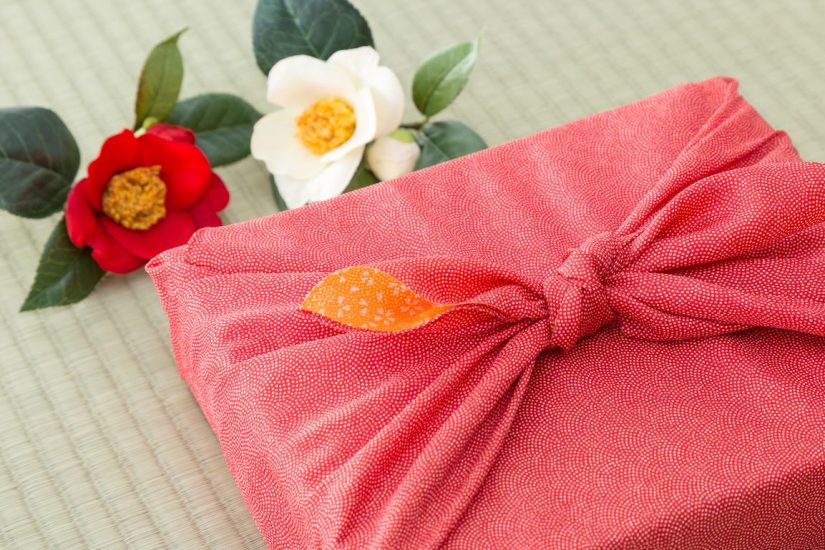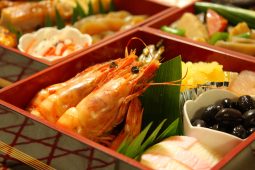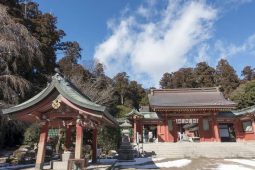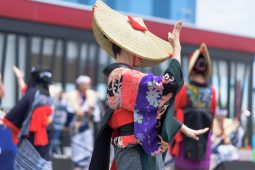Gift giving is an important social custom in Japan. There are seasonal presents in the summer and winter, gifts given to celebrate special occasions, and souvenirs which are essential after a trip.Collectively all these forms of gift-giving are called zōtō (贈答), and they represent an important social obligation. Below is a short guide to common types of gift giving in Japan.
Souvenirs are called omiyage (お土産) and should be given to your coworkers after even the shortest trip. People will usually buy something edible like sweets or snacks that can be shared out easily among colleagues. Typically this will also be a regional specialty food product which can be easily found in souvenir shops. Railway stations usually have a good selection of omiyage stalls and shops, so you can buy something quickly before you head back home and this will usually cost around 1,000 or 2,000 yen.
Visiting gifts are called temiyage (手土産) and are given when you visit someone’s house or if you visit another company. If you are visiting somebody’s house then assuming they are going to serve you tea, or a meal, you may wish to bring something sweet such as cakes or fruits. If you are visiting another company then the temiyage will be a box of sweets or snacks that can be easily shared out in much the same way as typical omiyage.
Seasonal gifts are given twice a year in the summer and winter. These gifts represent an expression of gratitude to someone who regularly helps you out in some way. This might be an important client, a teacher, or your boss. Ochūgen (お中元) gifts are given in early July, and oseibo (お歳暮) is a year-end gift. Gifts sets of food or drink are the most common types of present for both seasons. At these times of the year, prepackaged presents for ochūgen or oseibo can easily be found in department stores and these can cost between 3,000–10,000 yen depending on how much gratitude you are feeling!
Return gifts, called okaeshi (お返し), are given to show your gratitude for receiving a gift. Usually you can spend about half the price of the original gift on okaeshi.
Celebratory gifts are another important social obligation. At weddings, it is normal to bring gift money for the happy couple. This is called goshūgi (ご祝儀) and it is placed in a special envelope on which you have written your name and handed in at the wedding reception. The envelopes, called shūgi-bukuro (祝儀袋), can be bought at convenience stores. The amount of money can be 30,000 or 50,000 yen but it is important that it be an odd number, as even numbers can be divided easily and this is seen as inauspicious. If you feel particularly close to the couple, or if you want to express your gratitude to them, you may want to give them a physical gift as well. A pair of cups or glasses is a popular gift for a newly married couple, but you can also ask them in advance what they would find of practical use.It is important not to spend too much on a gift though as this could make the recipients feel uncomfortable.
Another important celebratory occasion is the New Year. At this time of year it is traditional for adults to give children a gift of money called otoshidama (お年玉) which is placed in a decorated envelope called a pochibukuro (ぽち袋). If you are invited to a friend or colleague’s home for New Year then you may consider preparing some otoshidama for their children. The amount of money is not decided, but probably somewhere between 3,000 and 5,000 yen would be acceptable.
Valentine’s Day in Japan has become a day when women give chocolate to men.
In the workplace many women will give out chocolate to their male coworkers. This is not done with romantic intent, but so that none of the men feel left out. Such gifts are called giri-choco (義理チョコ) which literally means „obligatory chocolate“! If you receive giri-choco on Valentine’s Day, then you should give a return gift one month later on March 14 th. This is called „White Day“ and the customary gift is white chocolate.








